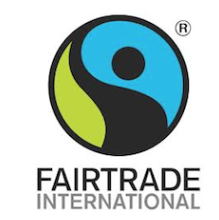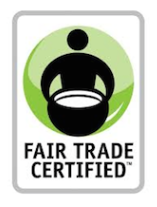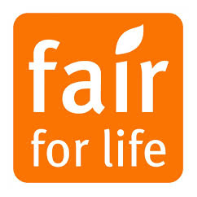Eat Healthier vs Eat More Ethically
Share

So you want to eat healthier this year. Cut out desserts, limit red meat, drink more water. But what about the impact that the food you have has on the men & women growing and packaging your items? Farmer's Markets can be a great option for local produce, but what about more staple items?
Here's a list of the most common (a.k.a. easiest to find!) Fair Trade Certified foods as a good starting place:
- Fair Trade Coffee
- Fair Trade Sugar
- Fair Trade Chocolate
- Fair Trade Honey
- Fair Trade Wine
Know your labels:
Did you know that there are several independent organizations who are working to help label items that have different standards?
 Fair Trade International - "Fair Trade standards are designed to tackle poverty and empower producers in the poorest countries in the world. The standards apply to both producers and traders."
Fair Trade International - "Fair Trade standards are designed to tackle poverty and empower producers in the poorest countries in the world. The standards apply to both producers and traders."
When you see this label on a package, it means that if it's a small scale producer (meaning the farm doesn't rely on hired help but is family run) that profits are equally distributed among producers. If they have hired help, they have a separate set of standards including worker representation, equal working conditions, and salaries to exceed minimum wage or higher than the regional average.
Each specific food category has it's own specific set of standards that must be compiled with to have this label.
 Fair Trade USA - "Our approach to certification enables many different producers of a range of commodities to participate and compete in international markets in ways that are fair and equitable today and help them to progress and acquire greater business capacity over time. Our standards aim to bring our mission of empowerment, economic development, social development and environmental stewardship to farmers and workers around the world."
Fair Trade USA - "Our approach to certification enables many different producers of a range of commodities to participate and compete in international markets in ways that are fair and equitable today and help them to progress and acquire greater business capacity over time. Our standards aim to bring our mission of empowerment, economic development, social development and environmental stewardship to farmers and workers around the world."
Their standards include minimum pay thresholds, minimum prices on specific items, no child labor, and no GMOs or toxic chemicals.

Fair For Life - "The Fair for Life Social & Fair Trade Certification Programme offers operators of socially responsible projects a solution for brand neutral third party inspection and certification in initial production, manufacturing and trading. It combines strict social and fair trade standards with adaptability to local conditions. The system is designed for both food and non-food commodities (like cosmetics, textiles or tourist services)."
While the industry has certainly come a long way in insuring that each step of the supply chain is adhering to ethical production standard, I think it's important to note that these certifications have their limits. They can be very expensive for a small organization and often times they don't yet have standards for specific products. It's also interesting to note that these certification organizations make money when their label is used and some have been known to drop their standards in order to increase the number of organizations who qualify. I make this note so that you will continue to research and learn about organizations with and without these labels since ethical sourcing and supply chains are never as black & white of a topic as we'd like.
